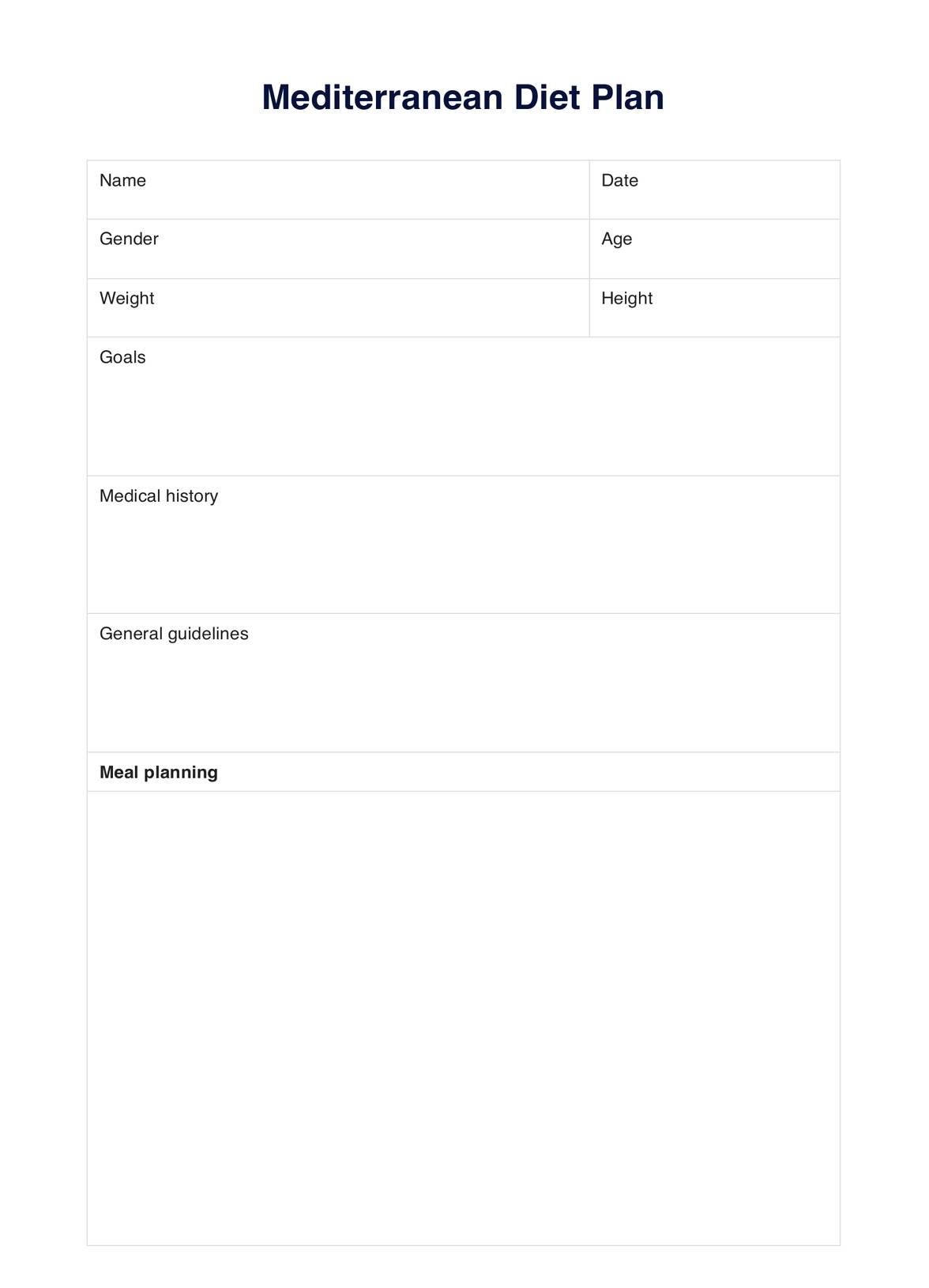A typical Mediterranean meal consists of various plant-based foods, such as fruits, vegetables, whole grains, legumes, nuts, and seeds. Meals often include olive oil as the primary fat source and moderate amounts of fish, poultry, eggs, and dairy products. Red meat is consumed in small portions, and wine is allowed in moderation with meals.

Mediterranean Diet Plan
Get a free Mediterranean Diet Plan template and help clients follow a healthy lifestyle. Download the PDF template and example here.
Mediterranean Diet Plan Template
Commonly asked questions
The Mediterranean diet does not strictly prohibit any specific foods, but it emphasizes limiting the intake of processed foods, refined carbohydrates, added sugar, and unhealthy fats. Foods that are not encouraged on the Mediterranean diet include processed meats, sugary beverages, sweets, and foods high in trans fats.
One potential disadvantage of the Mediterranean diet is that it may be more expensive than a typical Western diet, as it emphasizes fresh, whole foods. Additionally, the diet may be challenging for individuals accustomed to a high-meat, high-processed food diet.
EHR and practice management software
Get started for free
*No credit card required
Free
$0/usd
Unlimited clients
Telehealth
1GB of storage
Client portal text
Automated billing and online payments











